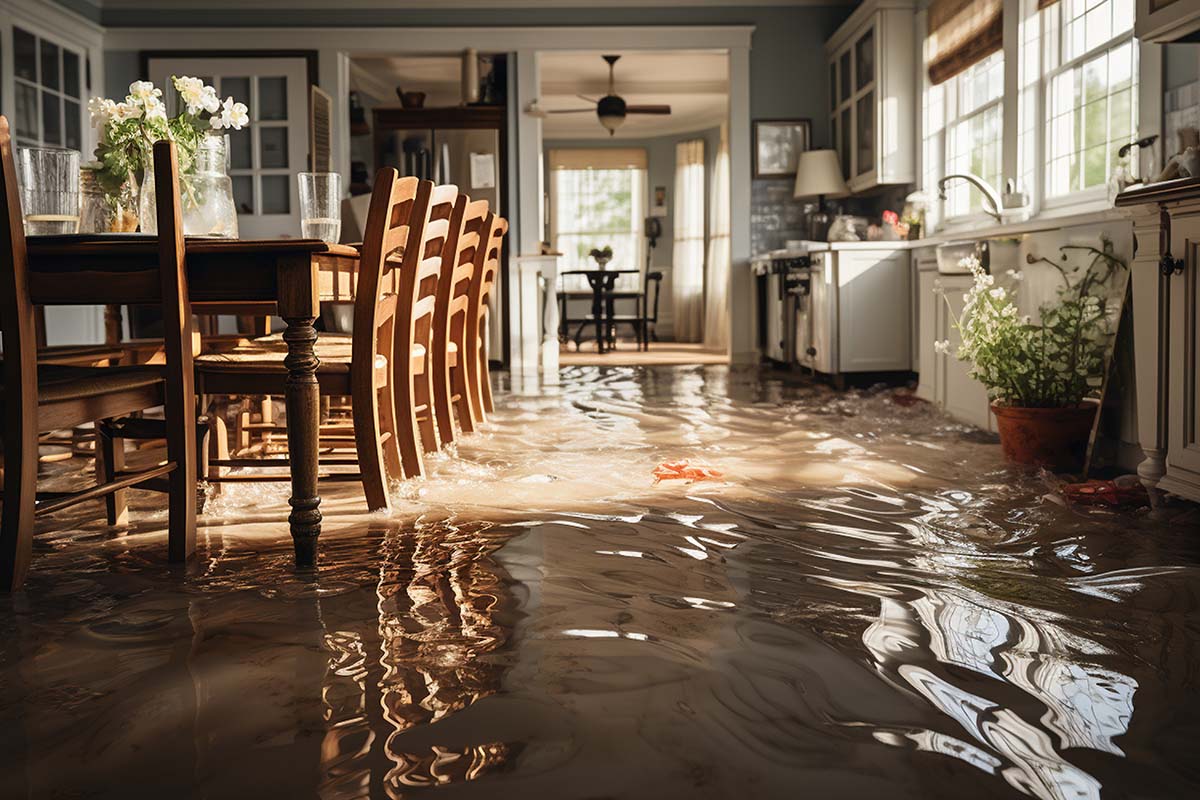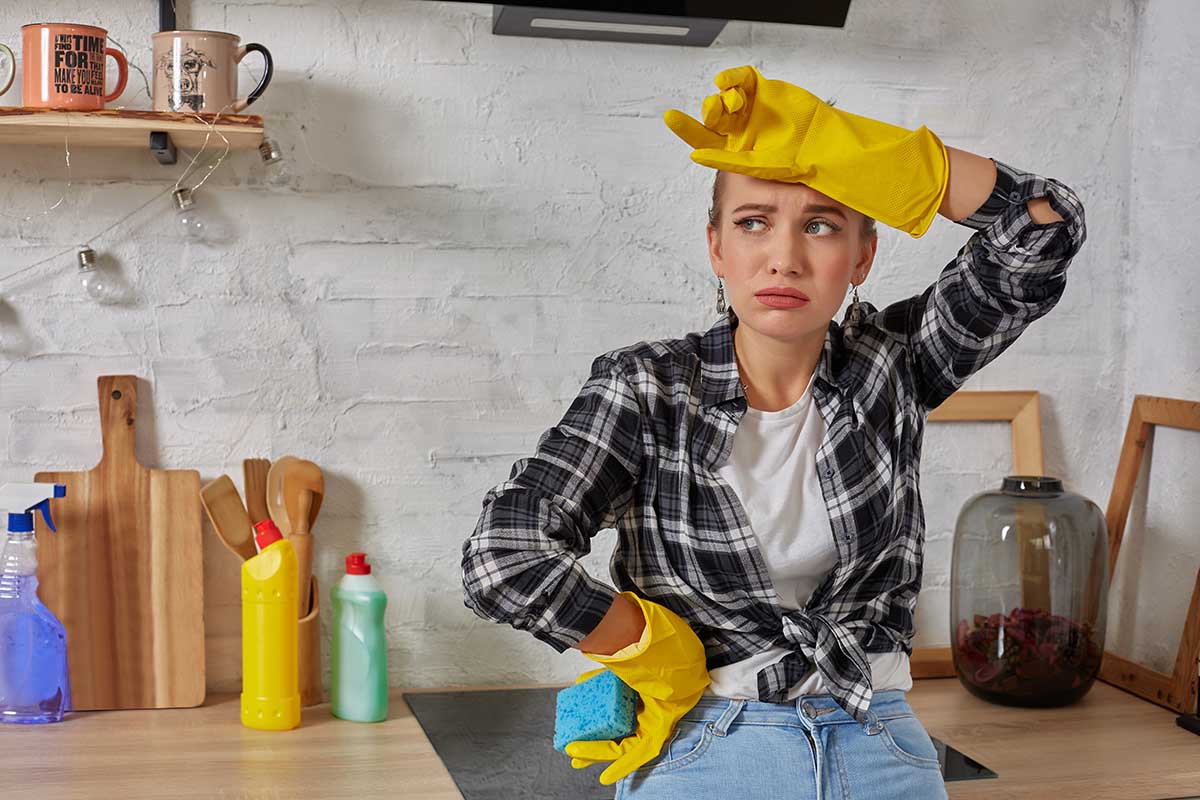How to Clean up Your Home After a Flood
Key Points
- Remove Irreversibly Damaged Items Quickly: Get rid of items that are beyond repair to create workspace and prevent bad odors from spreading. This helps in starting the cleanup process efficiently.
- Drain Water Fast: Speed up water removal by opening doors/windows, using electric pumps, squeegees, buckets, and ensuring drains are clear. This reduces water damage and aids in drying out the home.
- Thorough Cleaning and Drying: Clean thoroughly to eliminate pathogens and mold. Use antibacterial cleaners and dry out structural materials like wood and concrete to prevent long-term damage and corrosion.
When a flood strikes your home, the damage can be incredible. You may spend months trying to get everything cleaned up and attempting to repair the damage.
How do you deal with the aftermath and what are the first steps you should take?
Here are a few helpful suggestions to get you moving along and making some progress on your home repairs after a flood.
Hopefully, this kind of disaster will never strike you, but if it does, you can read this article to help you handle the situation.
Remove Things That Are Irreversibly Damaged
You have to start somewhere, and one of the first things you should do is to get rid of the items in your home that are so damaged that you cannot salvage them.
This may be documents, furniture, clothing, food, or other items that are beyond repair.
They may be spoiled or soaked to a degree that they cannot be used again, and you should toss them out quickly.
There are a few reasons for this. First of all, you want to make some space to work in, and damaged items that you won’t ever use again will simply get in the way.
Secondly, any damaged items could start to smell bad and affect the rest of the home.
You want to get rid of them fast so that your home smells pleasant quickly.
Save What You Can
As you look through your flooded house, you will find some items that can be salvaged.
Those need to be taken out of the floodwaters as quickly as possible.
You especially want to save anything valuable or anything that you may need later, like personal documents, cash, clothing, and furniture that will be spoiled if it stays in water longer.
Even if these items are very badly damaged, you may be able to save them. Put them in a dry place, even if it is a neighbor’s house.
Get them to dry out as fast as possible by placing them in sunlight or in front of a fan.
The faster you can dry them out, the more usable they will be and the more likely you will be able to save them.
You also want to save out any food items that could be in danger of spoiling if they stayed near the water.
Any food items that are only slightly damp could be saved.
Place them in a dry place and dry them off manually to ensure that they stay safe and usable.
Drain Water Out Fast
Water will seep out of your home on its own, but that could take a while. Once water is in your home, it may be tough to remove. Look or anything you can do to help it drain faster.
You can open doors and windows, pump out the lower levels with an electric pump, and push water out with a squeegee or broom. You can use buckets to remove large quantities of water and then dry up water with towels and fans.
You should also check your drains near your home, ensuring they are not clogged and that water can flow freely through them. It may also help to dig a drain from your house to allow water to drain off faster and naturally.
Clean the Home Thoroughly
You might not think of cleaning your home as a top priority when your home has been flooded. It should be high on the list of tasks to do, though.
That’s because there are all sorts of pathogens that can live in rainwater. You have to be careful about moving through floodwaters at all because of parasitic worms and bacteria.
You also want to clean your home to get rid of mold before it gets really bad.
Cleaning kills bacteria and helps preserve our homes. It gets rid of bad smells that may be a result of water damage, and cleaning helps you locate any issues in the home that need to be addressed.
You may want to find a professional cleaning service for the Orlando area that can clean up for you.
Having professionals on the job can make the work go faster and ensure it is done properly.
If you try to clean your own home after a flood, you could miss some crucial areas that need cleaning, and you could do a less thorough job than professional cleaners would.
If you clean the home or if you instruct your cleaner to do the work, make sure that antibacterial cleaners are used.
It is really important to kill as many germs as you can when you clean after a flood.
There will be so many microscopic creatures in your home after this event that you need to do some serious cleaning that is powerful enough and effective enough to kill microorganisms fast.
Dry Out Structural Materials
You also have to consider the strength and durability of any structural materials in your home that have been affected by the floodwaters.
If water has seeped into porous materials like concrete or wood, then those are in danger of corrosion or damage over time.
You need to dry these out and make the structural materials as new and water free as possible.
You can do that with some fresh air in the home (opening doors and windows), by setting up fans to blow air onto the materials, and by using heating in the home to dry out components quickly.
It is also important to address any metal parts of the home that have been water-damaged.
Thes should be dried off and then closely examined for signs of rusting. Remove the rust completely to help protect your metal materials in the home.
Wood is the most sensitive to water damage out of all home structural materials.
Make sure that wood is fully dried out and inspect it carefully to see if it needs to be replaced.
If you take these measures after a flood, you will get your home back into top shape quickly.





















